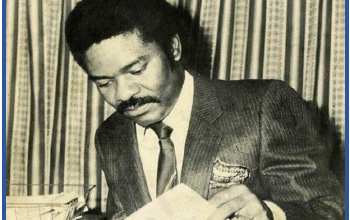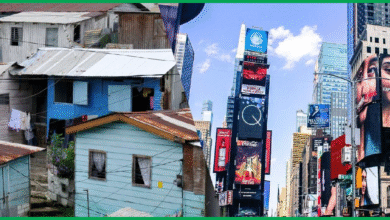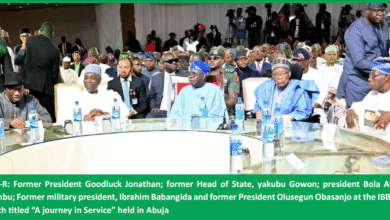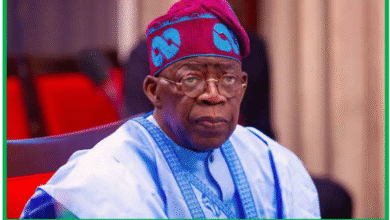HOW THE GAMBIA IS BUILDING A STRONG ECONOMIC FOUNDATIONS ON THE WATCH OF ADAMA BARROW

BY ADEBAYO OLA
In the heart of West Africa lies a nation of resilience and potential, The Gambia. With its rich cultural heritage and breathtaking natural beauty, The Gambia stands poised for economic prosperity under the visionary leadership of President Adama Barrow.
The country is a nation rich in cultural heritage and natural beauty. Despite its modest size, the country’s economy plays a significant role in the West African sub region. In recent years, The Gambia has been navigating a complex economic landscape, facing both challenges and opportunities, with appropriate strategies employed to foster sustainable growth.
Recently the Gambia has published a Climate Change Priority Action Plan that focuses on 24 cross-sectoral activities. This highlights the forward-thinking capacity inherent in the President Barrow’s leadership, talking pro-active approach to position the country. Of course, the country’s vulnerability to climate change, highlighting risks like flooding, droughts, and coastal erosion, which threaten food security and key industries. It details The Gambia’s climate strategies, including the National Climate Change Policy, 2050 Climate Vision, and Long-Term Climate-Neutral Development Strategy, targeting net-zero emissions by 2050. Despite its minimal global emissions contribution, The Gambia’s focus on renewable energy expansion offers dual benefits for energy security and development. All these underscores the need for improved land management, crop diversification, and irrigation to boost adaptive capacity and resilience of the people, ensuring food security amidst climate challenges. In the long run, The Gambia’s economy will gain tremendously.
Economic overview of The Gambia’s economy shows an economy that is primarily driven by agriculture, tourism, and remittances. Agriculture remains the backbone of the economy, employing a significant portion of the population and contributing to both domestic consumption and exports. The tourism sector, known for its beautiful beaches and vibrant culture, has been a vital source of foreign exchange earnings. Additionally, remittances from Gambians living abroad play a crucial role in supporting household incomes and bolstering the economy.
Despite these strengths, The Gambia faces several economic challenges. One of the primary obstacles is its vulnerability to external shocks, including fluctuations in commodity prices and adverse weather conditions that affect agricultural output. Moreover, the country’s infrastructure is in need of significant investment to improve connectivity and facilitate economic activities. Unemployment and underemployment also persist as pressing issues, particularly among the youth population.
In response to these challenges, the Gambian government has implemented various initiatives aimed at promoting economic resilience and fostering sustainable development. One such initiative is the National Development Plan (NDP), which outlines strategic priorities and interventions across key sectors such as agriculture, infrastructure, and tourism. The government has also prioritized efforts to improve the business environment, enhance governance, and attract foreign investment.
To realize these objectives, the country keys-in into a number of international Partnerships. The Gambia has actively engaged with international partners and multilateral institutions to support its development objectives. Partnerships with organizations such as the World Bank, the International Monetary Fund (IMF), and regional bodies like the Economic Community of West African States (ECOWAS) have facilitated access to financial assistance, technical expertise, and policy advice.

Aligned with the global agenda for sustainable development, The Gambia is committed to achieving the United Nations Sustainable Development Goals (SDGs). These goals encompass a wide range of economic, social, and environmental objectives, including poverty reduction, gender equality, and climate action. The Gambian government has integrated the SDGs into its national development framework, emphasizing the importance of inclusive and equitable growth.
Since assuming office, President Barrow has implemented a series of strategic measures aimed at revitalizing the Gambian economy, fostering sustainable growth, and improving the standard of living for all citizens.
President Barrow recognizes the importance of economic diversification as a cornerstone of long-term development. In a departure from over-reliance on traditional sectors like agriculture and tourism, his administration has championed initiatives to foster growth in emerging industries such as technology, renewable energy, and manufacturing. By diversifying the economy, The Gambia is better equipped to weather external shocks and capitalize on new opportunities in the global market.
Through infrastructure development, the Gambia has been connecting communities, driving progress. Investment in infrastructure is crucial for unlocking economic potential and enhancing the quality of life for citizens. President Barrow’s government has prioritized infrastructure development, with a focus on improving transportation networks, expanding access to electricity and clean water, and upgrading healthcare and education facilities. These investments not only stimulate economic activity but also lay the foundation for long-term social development and poverty alleviation.
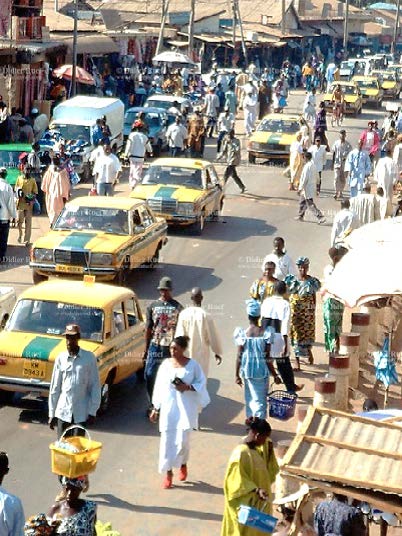
Another great initiative is about Pro-Business Reforms being created by government to build an enabling environment for investment. Recognizing the vital role of the private sector in driving economic growth, President Barrow has implemented a series of pro-business reforms to streamline bureaucracy, reduce red tape, and enhance the ease of doing business in The Gambia. These reforms have attracted foreign investment, stimulated entrepreneurship, and created jobs, particularly for the youth population. By fostering a business-friendly environment, the government aims to unleash the full potential of Gambian enterprises and attract further investment to propel economic expansion.
Empowering of youth and women unlocking human capital development is crucial to President Barrow. He understands that the youth and women constitute significant demographic dividends for The Gambia’s economic transformation. Through targeted programs and initiatives, his administration is investing in education, skills training, and entrepreneurship to empower these demographics and harness their full potential. By providing opportunities for youth and women to actively participate in the economy, The Gambia is cultivating a dynamic workforce capable of driving innovation and sustainable development.
As a member of the Economic Community of West African States (ECOWAS) and other regional blocs, The Gambia recognizes the importance of regional integration for economic growth and stability. President Barrow’s government actively engages with neighboring countries and regional partners to enhance trade relations, promote cross-border investment, and foster collaboration on key economic initiatives. By leveraging its geographic position and regional partnerships, The Gambia is positioning itself as a hub for trade and investment in West Africa.
In line with global efforts to combat climate change and promote sustainability, President Barrow’s administration is committed to pursuing economic development in an environmentally responsible manner. Through initiatives such as renewable energy expansion, afforestation projects, and sustainable agriculture practices, The Gambia is mitigating environmental degradation while simultaneously fostering economic growth. By prioritizing sustainability, the government is safeguarding the country’s natural resources for future generations and promoting resilience in the face of climate-related challenges.
A Bright Future Ahead
The Gambia’s economy is characterized by a mix of opportunities and challenges. While agriculture, tourism, and remittances continue to drive economic activity, the country grapples with issues such as external vulnerabilities, infrastructure deficits, and unemployment. Nevertheless, through strategic initiatives, international partnerships, and a commitment to sustainable development, The Gambia is striving to build a resilient economy that promotes prosperity and well-being for its citizens. As the nation continues on its development journey, collaboration among stakeholders, both domestic and international, will be essential in overcoming obstacles and realizing its full potential. Under the leadership of President Adama Barrow, The Gambia is charting a course towards economic prosperity and social progress. Through a comprehensive strategy encompassing economic diversification, infrastructure development, pro-business reforms, youth and women empowerment, regional integration, and sustainable development, the government is laying the foundation for a resilient and inclusive economy. As The Gambia continues on this trajectory of growth and transformation, President Barrow’s vision and leadership will undoubtedly play a pivotal role in shaping the nation’s future for generations to come.

